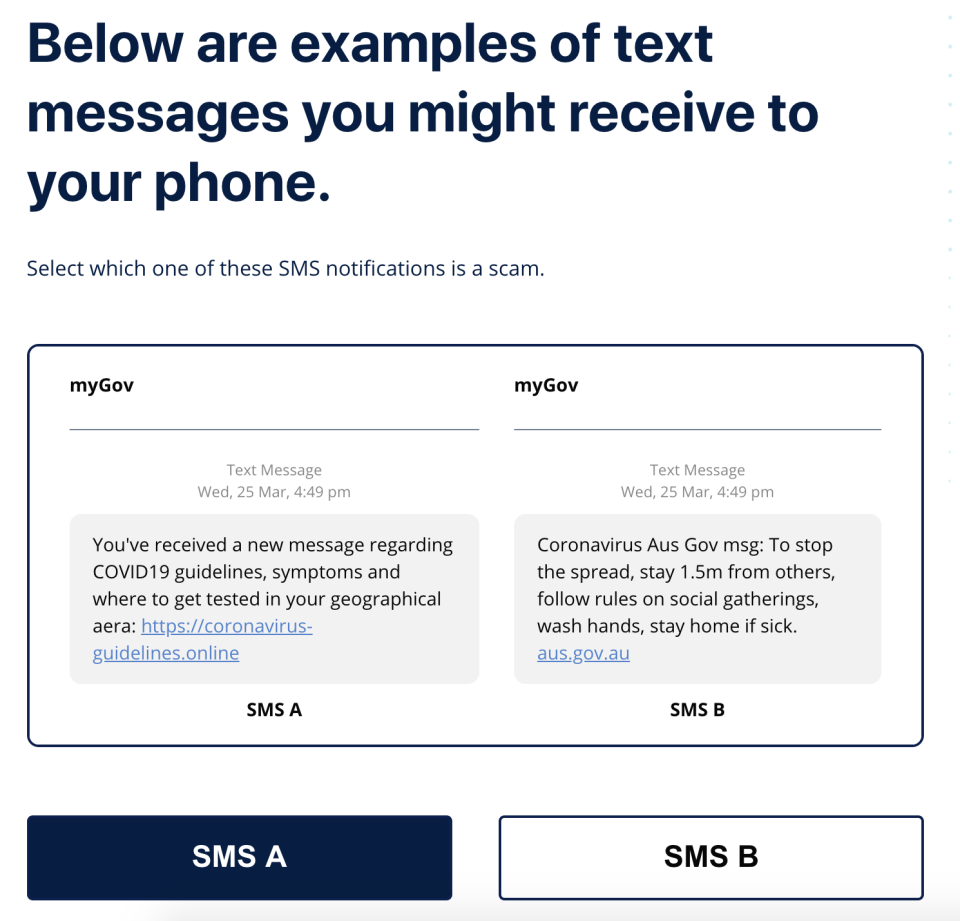This quiz shows how likely you are to fall for a scam

The government is warning Australians to take extra caution against cyber scams – in fact, over 3,060 coronavirus-themed scams have cost Aussies more than $1,371,000 since the outbreak of the pandemic.
According to the Australian Cyber Security Centre (ASCS), cyber criminals have been attempting – successfully – to steal private information and money through phishing scams in the form of fake emails or messages, and Covid-19 has provided the perfect cover.
“Cybercriminals send phishing messages all the time. But crises like Covid-19 sadly provide more opportunity for cybercriminals to take advantage of vulnerable people wanting additional information by imitating trusted, well-known organisations or government agencies who might provide answers,” stated an alert by the ASCS.
Also read: You’re filing your taxes wrong: 6 cyber mistakes you should never make
Also read: Don’t take this phone call during tax season, ATO warns
Also read: 6 things the ATO is scrutinising this year
“They remain among the most common method used by malicious cyber actors to target Australians,” stated an alert by the ASCS.
“While phishing messages are commonly sent out in their thousands, spear-phishing campaigns are typically aimed at a particular group of recipients.”
Why it’s so hard to spot a phishing scam
Online criminals go to great lengths to disguise their scam – and they’re constantly getting better at it.
Many phishing emails will feature official-looking logos, branding, font and layout from what appears to be respected institutions, the ASCS warned.
“As well as featuring official-looking logos and disclaimers, phishing emails typically include a 'call to action' to trick recipients into sharing sensitive personal information from passwords to banking details.”
Other techniques they might use would be to get you to click on a malicious link or attachment or tricking you into sharing sensitive information.
To help combat this, the ASCS has put together a quiz to test how well you can tell the difference between legitimate and fake.
The quiz presents three emails and a text message, and asks you to determine whether it’s the real thing or just pretending to be.


And even if you answer all of the questions correctly, it runs through each of the give-away signs of the email that help you determine whether it’s real or fake, some of which are hard to pick up on.
The ASCS is hiring
If you aced the quiz, the ACSC might want to hear from you.
There are fourteen jobs going at the ASCC at the moment, and they’re looking for people with diverse skill sets.
“[The Australian Signals Directorate] operates in incredibly challenging and dynamic technical and operational environments. As such it requires staff with a rare mix of specialist skills, adaptability and imagination,” the ASD said on its careers website.
“These abilities are needed to out-think and out-imagine some of the most testing adversaries and problems imaginable.
“If you want to work with other smart, skilled people, consider ASD. If you consider yourself one of the best, then we are interested in you.”
The roles range from $67,100 to six-figure salaries.
Cyber security specialists have been flagged as one of the fastest-growing jobs in Australia. By 2024, we’ll need an extra 100,000 workers in the tech sector.
Analysis also revealed that RMIT Australia had the best masters degree in the country for learning cyber security.
Make your money work with Yahoo Finance’s daily newsletter. Sign up here and stay on top of the latest money, property and economy news.
Follow Yahoo Finance Australia on Facebook, Twitter, Instagram and LinkedIn.

 Yahoo Finance
Yahoo Finance 

